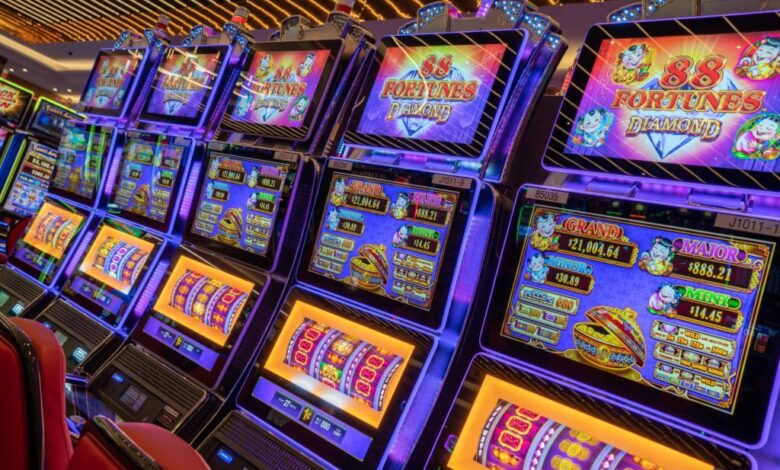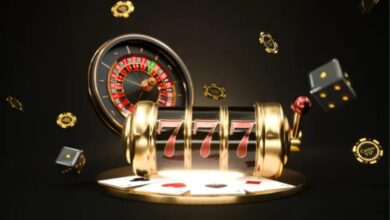The Psychology of Winning: Why Situs Slot Gacor Hari Ini Machines Keep You Hooked

Online gambling has surged in popularity over the past decade, with slot machines becoming the crown jewel of digital casinos. Among these, situs slot gacor hari ini (loosely translated as “today’s hot slots”) have captured the attention of gamblers everywhere. These machines are celebrated for their perceived increased chances of winning, attracting seasoned players and newcomers alike. But what makes these slots so compelling? The answer lies in the psychology of winning and the intricate mechanisms that keep players coming back for more.
The Allure of “Hot Slots”
The term slot gacor hari ini implies that a particular machine is in a “hot” streak, paying out more frequently or generously than usual. This belief triggers a psychological effect called illusory correlation, where players perceive a connection between specific events and outcomes, even when none exists. This perception fuels excitement and anticipation, making players more likely to engage with the slot in question.
Winning—even small amounts—activates the brain’s reward system, releasing dopamine, the feel-good neurotransmitter. This rush creates a positive association with the activity, making players eager to repeat the experience. The idea that a slot machine is “hot” amplifies this effect, leading players to chase the high of potential big wins.
The Role of Random Rewards
Slot machines operate on a random number generator (RNG), ensuring each spin is independent of the previous one. Despite this randomness, the machines are designed to provide intermittent rewards—small wins situs slot gacor hari ini spaced out by losses. This variable ratio reinforcement schedule is one of the most powerful psychological tools used in gambling.
Players never know when the next win will come, which keeps them engaged and spinning. The unpredictability heightens anticipation and excitement, making it difficult to step away. For situs slot gacor hari ini machines, the belief that they are more likely to pay out adds an extra layer of motivation to keep playing, even during a losing streak.
The Power of Near Misses
Another psychological mechanism that slot machines exploit is the concept of near misses. A near miss occurs when the reels stop just shy of a winning combination, such as two matching symbols and a third almost lining up. While objectively a loss, near misses are perceived as “almost wins,” triggering a sense of frustration mixed with optimism.
This phenomenon taps into the cognitive bias that convinces players they are close to winning, motivating them to continue spinning in the hope of a payoff. In situs slot gacor hari ini machines, the illusion of a near win can be even more potent, as players may believe the slot is building up to a significant payout.
Lights, Sounds, and Sensory Stimulation
Slot machines are designed to be visually and audibly stimulating. Flashing lights, celebratory sounds, and vibrant animations create an immersive environment that captures attention and heightens emotional responses. When players win—even small amounts—the celebratory feedback reinforces the behavior, encouraging them to keep playing.
On situs slot gacor hari ini platforms, developers often enhance the sensory experience with interactive graphics and animations that make the game feel alive. These elements create a sense of accomplishment and enjoyment, even if the player is not significantly ahead financially.
Social Proof and the Bandwagon Effect
The popularity of situs slot gacor hari ini machines often spreads through word-of-mouth or online communities where players share their success stories. Hearing about others’ wins can create a phenomenon known as the bandwagon effect, where individuals are more likely to try something because others are doing it.
Social proof is a powerful motivator in gambling. Seeing others succeed reinforces the belief that a slot machine is indeed “hot,” prompting more players to join in and test their luck. Online casinos capitalize on this by showcasing leaderboards, recent wins, or jackpot announcements to create a sense of urgency and competition.
Loss Aversion and the Sunk Cost Fallacy
A critical psychological factor that keeps players hooked is loss aversion. People tend to feel the pain of losses more acutely than the pleasure of equivalent gains. When players lose money on a slot machine, they may continue playing to “win back” their losses, leading to a cycle of chasing bets.
The sunk cost fallacy further compounds this behavior. Once players have invested time and money into a slot machine, they are more likely to continue playing, rationalizing that they are “due” for a win. In the case of situs slot gacor hari ini machines, the belief that the slot is hot can strengthen this fallacy, making it harder to walk away.
The Gamification of Gambling
Many situs slot gacor hari ini platforms incorporate elements of gamification to enhance engagement. Features like progress bars, unlockable bonuses, and loyalty rewards make the experience feel less like gambling and more like playing a video game.
These features tap into players’ desire for achievement and progress, encouraging them to keep spinning to reach the next milestone. Combined with the allure of “hot slots,” gamification creates a deeply immersive and addictive experience.
Conclusion
The psychology of winning is at the heart of why situs slot gacor hari ini machines are so captivating. From the thrill of unpredictability to the power of sensory stimulation, these slots are expertly designed to keep players engaged. By understanding the psychological mechanisms at play, players can approach these games with greater awareness and control.
While the allure of a “hot slot” is tempting, it’s essential to remember that gambling should always be viewed as a form of entertainment, not a guaranteed path to profit. Play responsibly, set limits, and enjoy the experience without losing sight of the bigger picture.





